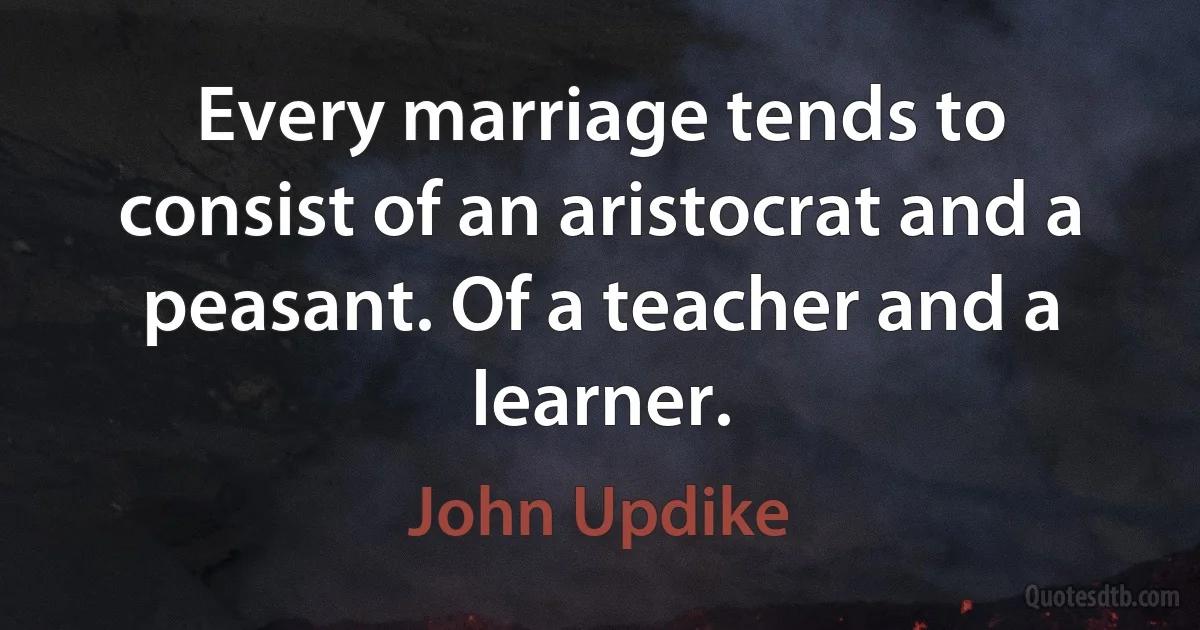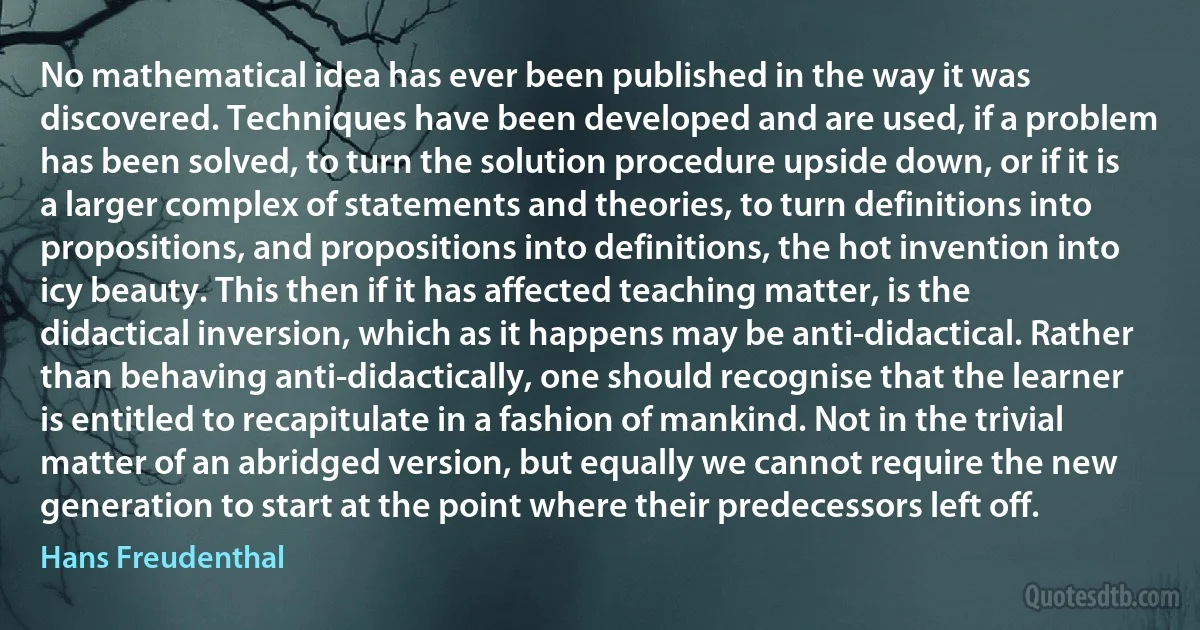Learner Quotes
There is a gap between the knowledge, skills, or state of mind of the learner and what he is to learn, which it seems to me any teaching activity must seek to bridge if it is to deserve that label. Teaching activities must therefore take place at a level where the pupil can take on what it is intended he should learn.

Paul Q. Hirst
I was in school - I was a good learner; if I wanted to get something done, I could get it done. I was lazy, though. I was always, like, sort of an outcast. And when I got home, I was always doing music, but when I was doing music, no one was there to judge it, you know? It was just me in my bedroom. It gave me freedom and made me happy.

Afrojack
I plan to vote for Barack Obama in the Pennsylvania primary because he is a rational, centered personality who speaks the language of idealism and national unity. Obama has served longer as an elected official than Hillary. He has had experience as a grass-roots activist, and he is also a highly educated lawyer who will be a quick learner in office. His international parentage and childhood, as well as his knowledge of both Christianity and Islam, would make him the right leader at the right time. And his wife Michelle is a powerhouse. The Obamas represent the future, not the past.

Camille Paglia
My specific... object has been to contain, within the prescribed limits, the whole of the student's course, from the confines of elementary algebra and trigonometry, to the entrance of the highest works on mathematical physics. A learner who has a good knowledge of the subjects just named, and who can master the present treatise, taking up elementary works on conic sections, application of algebra to geometry, and the theory of equations, as he wants them, will, I am perfectly sure, find himself able to conquer the difficulties of anything he may meet with; and need not close any book of Laplace, Lagrange, Legendre, Poisson, Fourier, Cauchy, Gauss, Abel, Hindenburgh and his followers. or of any one of our English mathematicians, under the idea that it is too hard for him.

Augustus De Morgan
In India also, for century, education imparted through the medium of a foreign language has unduly dominated its academic life and it has now produced a class of men who are unconsciously so denationalised that any far reaching proposal for the recognition of the Indian languages as the vehicle of teaching and examination up to the highest University stage is either ridiculed as impossible or branded as reactionary. But I plead earnestly for the acceptance of this fundamental principle not on account of any blind adherence to things that I claim as my own but out of a firm conviction that the fullest development of the mind of a learner is possible only by this natural approach and also that by this process alone can there be a great revival of the glory and richness of the Indian languages.

Syama Prasad Mookerjee
[Guided reinvention is] striking a subtle balance between the freedom of inventing and the force of guiding, between allowing the learner to please himself and asking him to please the teacher. Moreover, the learner's free choice is already restricted by the "re” of "reinvention”. The learner shall invent something that is new to him but well-known to the guide.

Hans Freudenthal
Our mathematical concepts, structures, ideas have been invented as tools to organise the phenomena of the physical, social and mental world. Phenomenology of a mathematical concept, structure, or idea means describing it in its relation to the phenomena for which it was created, and to which it has extended in the learning process of mankind, and, as far as this description is concerned with the learning process of the young generation, it is didactical phenomenology, a way to show the teacher the places where the learner might step into the learning process of mankind.

Hans Freudenthal
The ancients considered mechanics in a twofold respect; as rational, which proceeds accurately by demonstration, and practical. To practical mechanics all the manual arts belong, from which mechanics took its name. But as artificers do not work with perfect accuracy, it comes to pass that mechanics is so distinguished from geometry, that what is perfectly accurate is called geometrical; what is less so is called mechanical. But the errors are not in the art, but in the artificers. He that works with less accuracy is an imperfect mechanic: and if any could work with perfect accuracy, he would be the most perfect mechanic of all; for the description of right lines and circles, upon which geometry is founded, belongs to mechanics. Geometry does not teach us to draw these lines, but requires them to be drawn; for it requires that the learner should first be taught to describe these accurately, before he enters upon geometry; then it shows how by these operations problems may be solved.

Isaac Newton
Students teach all sorts of things but most importantly they make explicit the courage that it takes to be a learner, the courage it takes to open yourself to the transformative power of real learning and that courage I am exposed to almost every day at MIT and that I'm deeply grateful for.

Junot Diaz



